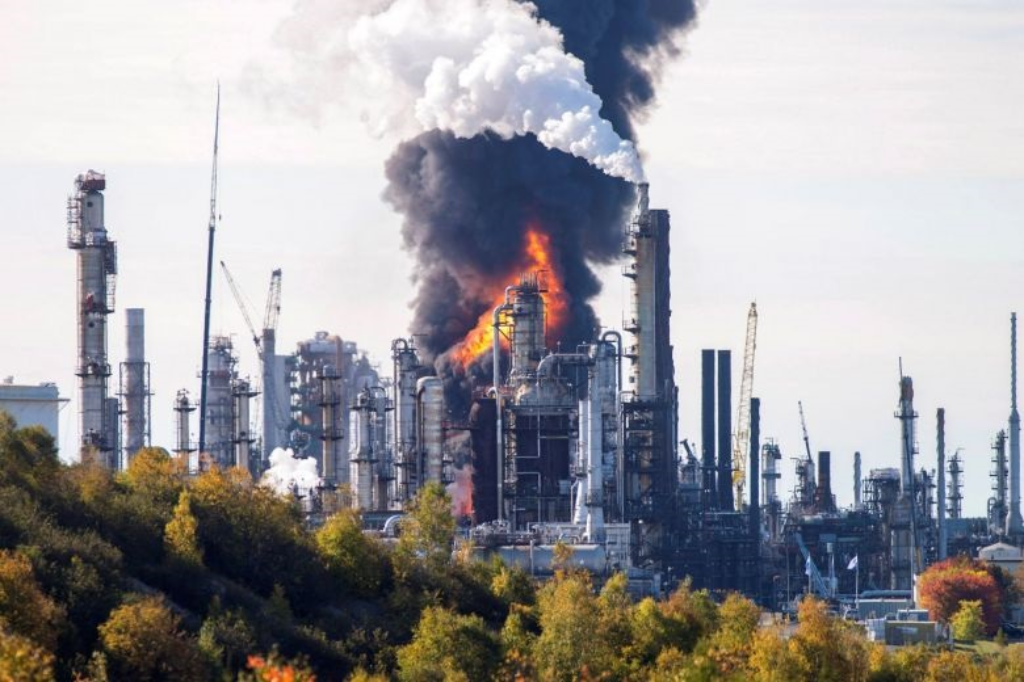
WHY USE EBL FOR YOUR NEXT PHA?
We offer the most efficiently run PHA meetings by cutting down meeting time by 50%. We do this by performing tasks outside of the PHA meeting that don’t need input from the PHA team. This allows EBL, with our unique knowledge base, to quickly, efficiently, and thoroughly move through the PHA in less time than most trained facilitators are capable of doing. This translates to less time that you and your personnel have to sit through PHA meeting and let get the facts straight. Time is money! Our experience as plant operations engineers and process designers also gives us exceptional insight into most aspects of a processing facility. Give EBL a try and you too can benefit from the most efficiently run PHA meeting you have ever experienced.
OUR EXPERIENCE
Experience is critical in achieving optimal results within a PSM/RMP program. Our engineers have years of experience in different facilities throughout the country. We perform dozens of compliance audits, including NEP assessments, and dozens of SIL Selection Analyses, including Layer of Protection Analyses (LOPAs). We perform process safety work in Refining, Petrochemicals, Chemicals, Pulp & Paper, Pipeline and Marine Terminals, Food and beverage industry, Mining, etc.
We have a wide range of experience using many of the commercially available software packages for documenting process hazard analyses (PHAs). We also have experience using in-house database programs developed by our customers at the plant or corporate level. This experience means we can quickly and easily apply our knowledge regardless of the software your facility uses.
With our process safety and risk management services, our clients always meet their safety, health, and environmental compliance needs in a thorough, systematic, and efficient manner. We have the experience to address issues ranging from operational risk, equipment integrity, loading limits or naturally occurring hazards.
Our services include:
- PSM programs
- Process Hazard Analyses (PHAs)
- Layer of Protection Analyses (LOPAs)
- Dust Hazard Analyses (DHAs)
- Resolving/Engineering/Implementing PHA recommendations
- PHA Revalidations
- Safety Integrity Level (SIL) selection analyses for Safety Instrumented Systems (SISs)
- PSM / RMP Compliance Audits
- Preliminary Hazard and Operability Studies (HAZOP) Studies
- New Plant HAZOPs and PHAs
- PHA leader training course
- Management of Change (MOC) training course
- Incident investigation training course
- GAP Analysis for PSM / RMP Compliance
- Independent Program Assessments
- Evaluating extent of regulatory coverage and documenting legal justification for coverage boundaries
- Performing hazard assessments
- EPA Risk Management Plans
- Mechanical Integrity Audits
- EPC process support
- Pre-Acquisition Due Diligence Surveys
- Developing Operating Procedures
- Review of Operating Procedures
- Operator Task Analysis
- Incident Investigation
- Assistance in abating OSHA citations
- Litigation support and Expert Witness services
- Developing Process Safety Information, including
- Process flow diagrams (PFDs)
- Process chemistry
- Material interaction matrix
- Maximum Intended Inventories
- Safe upper and lower operating limits and consequences of deviations
- Piping and instrumentation diagrams (P&IDs)
- Electrical Classification drawings and interpretation of codes and standards regarding area electrical classification
- Relief System design and design basis, including determining relief valve sizing bases and evaluating flare header capacity, liquid knockout requirements, and flare stack design for adequacy
- Ventilation System design information such as compressor building ventilation systems, including interpretation of applicable codes and standards for determining ventilation requirements
- Identifying design codes and standards employed in the design of a process
- Material and energy balances
- Safety systems documentation, including safety system plot plans and written descriptions of safety systems (e.g., interlocks, detection, suppression, utility, and containment systems)
- Identifying recognized and generally accepted good engineering practices (RAGAGEP) used in the design of a process.
OTHER PROCESS SAFETY RELATED SERVICES
Process Safety Related Training Courses
We offer several process safety-related training courses. The shorter classes are offered via the online platform. In contrast, more in-depth classes are offered on-site at the client’s facilities.
Here for you
Call us 24/7. We are there for your support
GPS Address
AK - 040-4605
Contact Details
Email Address: [email protected] +233200642591 +233202473696
Where to find us
119 Otumfo Osei Tutu II
Adjacent SSNIT Buidling
Kumasi - Ashanti Region
Ghana, West Africa
